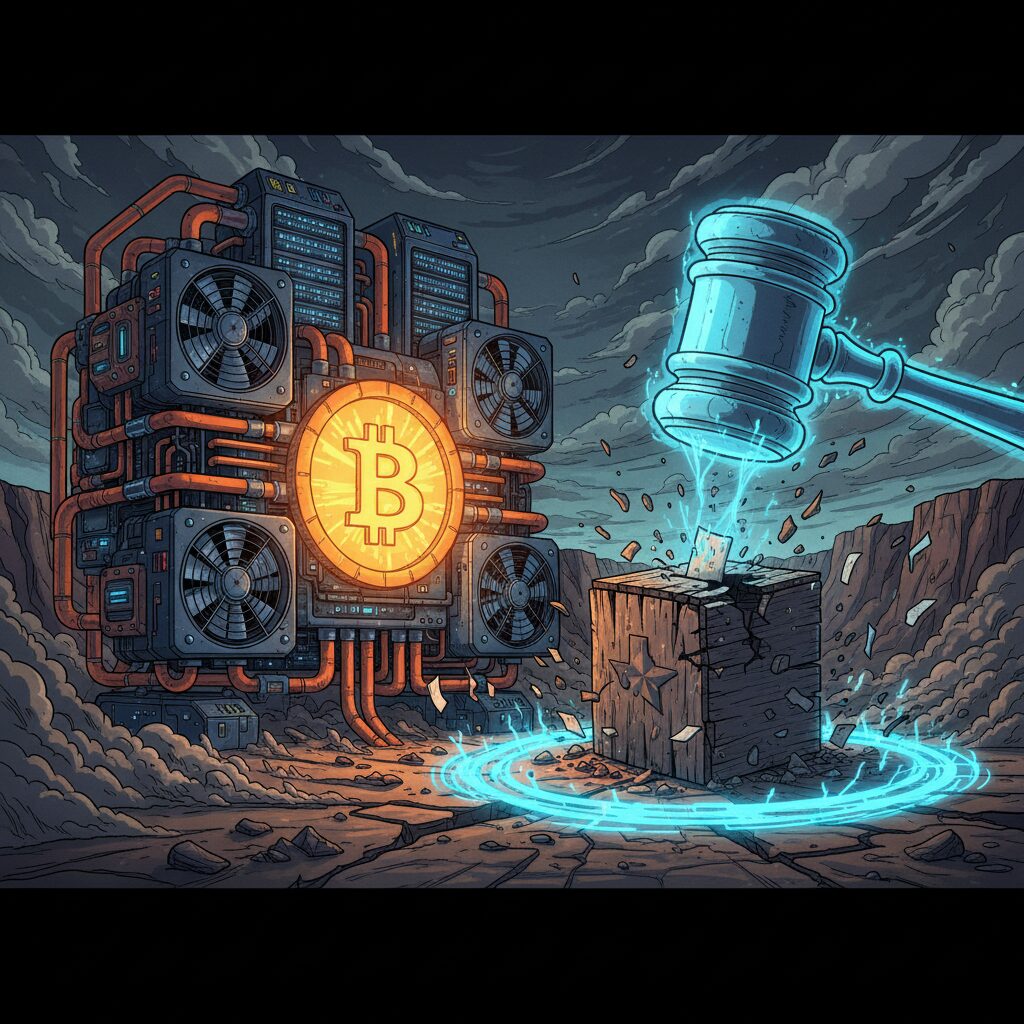MARA Sues Texas County to Block Election Targeting Its Bitcoin Mine

Noise Complaints Spark Legal Battle
Bitcoin mining firm MARA Holdings has filed a lawsuit to block a local election in Hood County, Texas, scheduled for November 4, alleging the ballot measure is a targeted effort to threaten its operations. The company claims that county officials have unlawfully placed an incorporation measure on the ballot that directly targets its Granbury data center.
At the heart of the dispute is a proposal to create a new town called Mitchell Bend. According to MARA’s 47-page complaint, the town’s proposed borders were intentionally drawn to encircle the mining site, giving a new local government regulatory power over the facility.
The legal action stems from long-standing friction with the community. Since the crypto mining facility opened in 2023, local residents have complained about what they describe as a constant “roar.” One county commissioner vividly compared the noise to trying to sleep with a leaf blower under a pillow.
Efforts to Mitigate and the Stakes of Incorporation
MARA insists it has worked diligently to reduce the noise from its operations. In 2024, the company extended its 2,000-foot-long, 24-foot-tall soundproofing wall. It also replaced a majority of its cooling fans with quieter liquid-based systems and moved the remaining fan-cooled units farther away from residential homes, with more soundproofing measures planned.
The lawsuit accuses County Judge Ron Massingill and other officials of fast-tracking the election measure, even alleging that they have acknowledged defects in their petition to incorporate the new town. This conflict escalated a month after a Texas state court rejected MARA’s bid to dismiss a separate complaint from Granbury residents demanding the firm release data on its noise levels.
If Mitchell Bend becomes an official town, MARA’s 60,000-machine facility could face closure or be forced to scale back its activities. The new municipality would have the authority to impose local regulations, ordinances, taxes, and zoning laws on the site. MARA argues this is a clear attempt to “regulate it out of business.”








